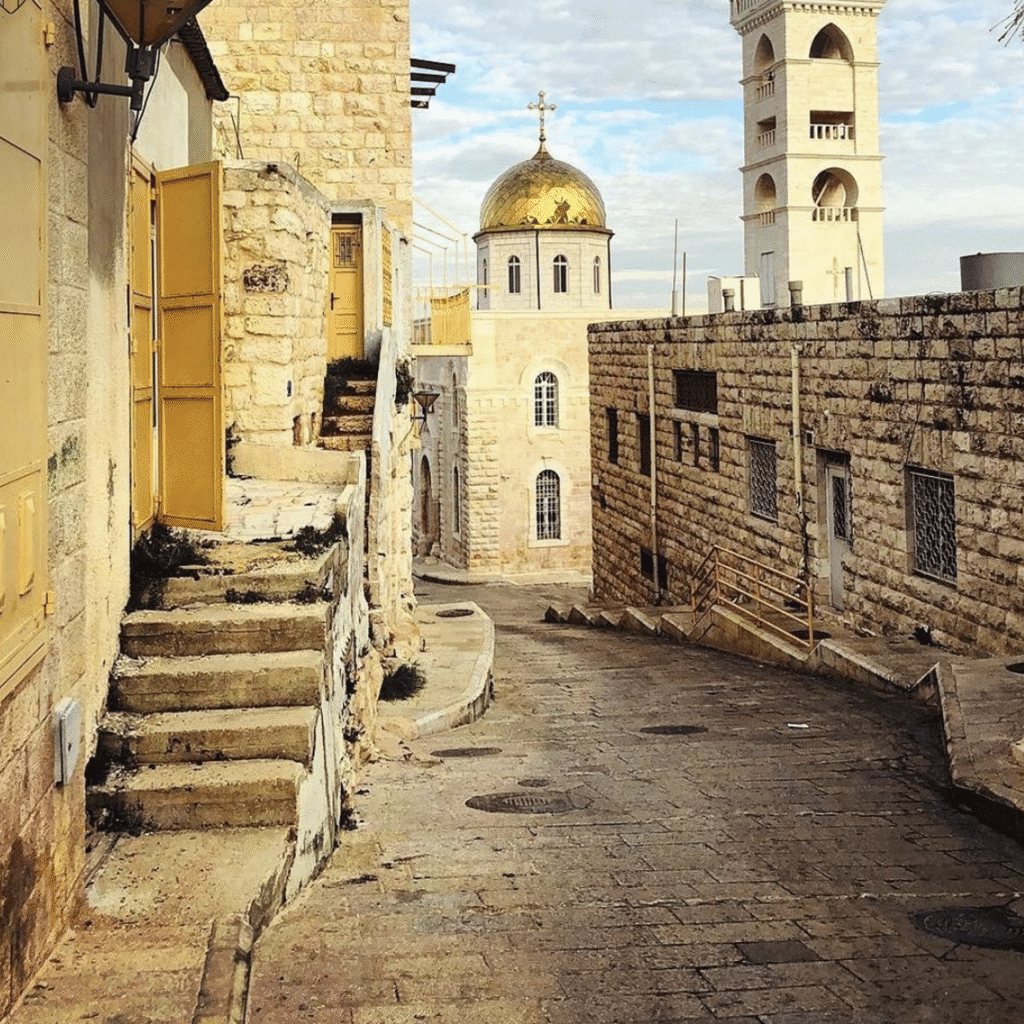Greetings from Pastor Khader:
Dear Sisters & Brothers al in Christ…
As fall begins in New York, the weather reminds me of how the autumn months felt back home in Palestine, and so on my way to church each morning I recall many past October and November months which I spent together with all of the members of my family, participating in each year’s olive harvest. Beginning early in the morning, we would travel to the fields of olive trees that generations of my family have cultivated and loved.
The roots of these trees are, in a way, my own roots. Each day for several weeks, we work first to gather the olives onto large beige tarps, and at the end of each day to clean our harvest, and to return home tired but fulfilled. Each day, the pile of olives on our roof would grow higher and the branches of the trees would grow barer, until finally my brothers and I would take the fruits of all of our labor and love to be pressed into (famous!) Beit Jala olive oil.
Yet like all things sacred, the olive harvest’s meaning is much greater than either the oil or the fruit that it produces. Since the day after the Great Flood, when the dove which Noah let fly free from the Ark returned to him with a live olive branch, olive trees have become a universal symbol of the strength of hope, and of the hope for peace.
And while Thanksgiving time, for most of you, likely elicits many years of memories of the bittersweet joy of family, the olive harvest also reminds me of some of my best childhood memories.
From time to time during the harvest, my grandmother would gather all of her grandchildren around her under an olive tree. First, she would remind us of the importance of the tree above us. Even if the trunk of an olive tree is severed, its roots continue to grow, ensuring us that next year we will have olives again. My grandmother would remind us that the olive tree’s roots are our own roots: our heritage. Like our families, our communities, and our Church, they support us and promise us strength and renewal.
She would remind us that no matter what might happen, under the olive trees we would always be able to experience belonging.
Eventually, my grandmother would move to other stories. Beginning with stories from the Bible, she would then help us to both memorize and internalize the Lord’s Prayer, the Ten Commandments, and the Nicene Creed. In a way, my true first communion was there with my grandmother, under the olive tree.
The olive harvest and Thanksgiving both come only once a year. However, as I completed my twelve years of ministry here at Grace Lutheran Church, I hope that as a Church we can commit to taking time each day to experience and express similar gratitude for God’s blessings.
Grace Lutheran Church is itself an olive tree. We are its fruitful branches. As we collect both sunlight and rain this year, what is important is that we bring these
experiences together, to create the life of this church. In the coming months and years, my hope is to help mobilize all of the members—from the oldest to the youngest, and particularly the families together—to plant and sow new programs and initiatives in order to ensure that the roots of our church will continue to sprout new life for generations to come.
Finally, during both Thanksgiving and the olive harvest, our primary thankfulness is extended upwards, through our tree’s uppermost branches, towards God the Almighty.
As we gather as families this month, let us remain mindful of and thankful for our potential to sprout our roots ever deeper into the ground, and to grow our branches ever higher, by working together as a community of faith to spread the Word of love, welcoming, and belonging.

